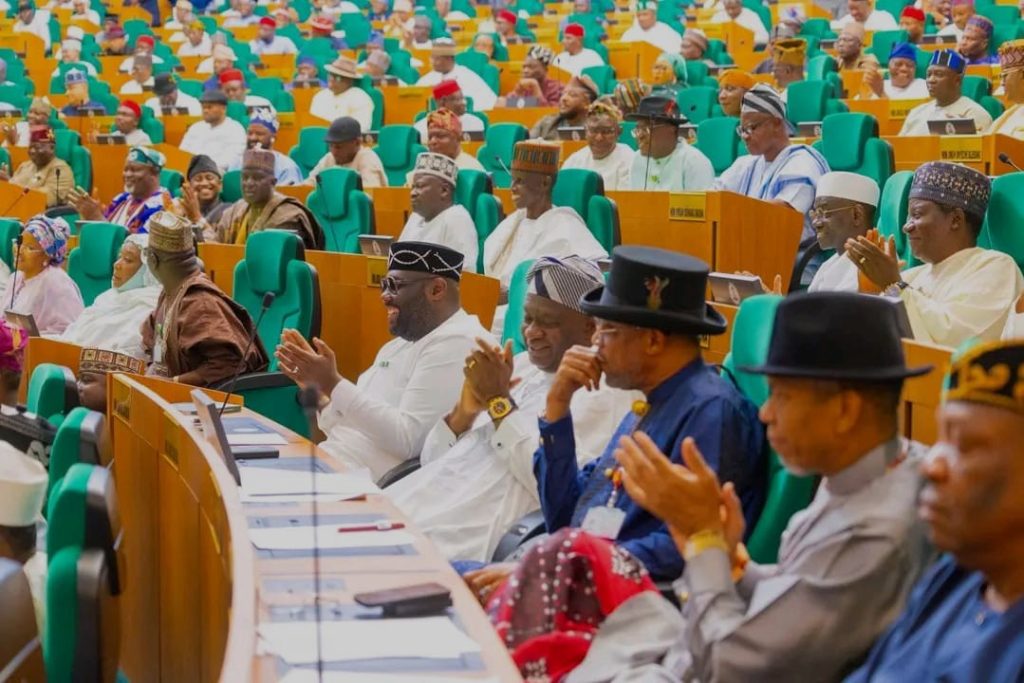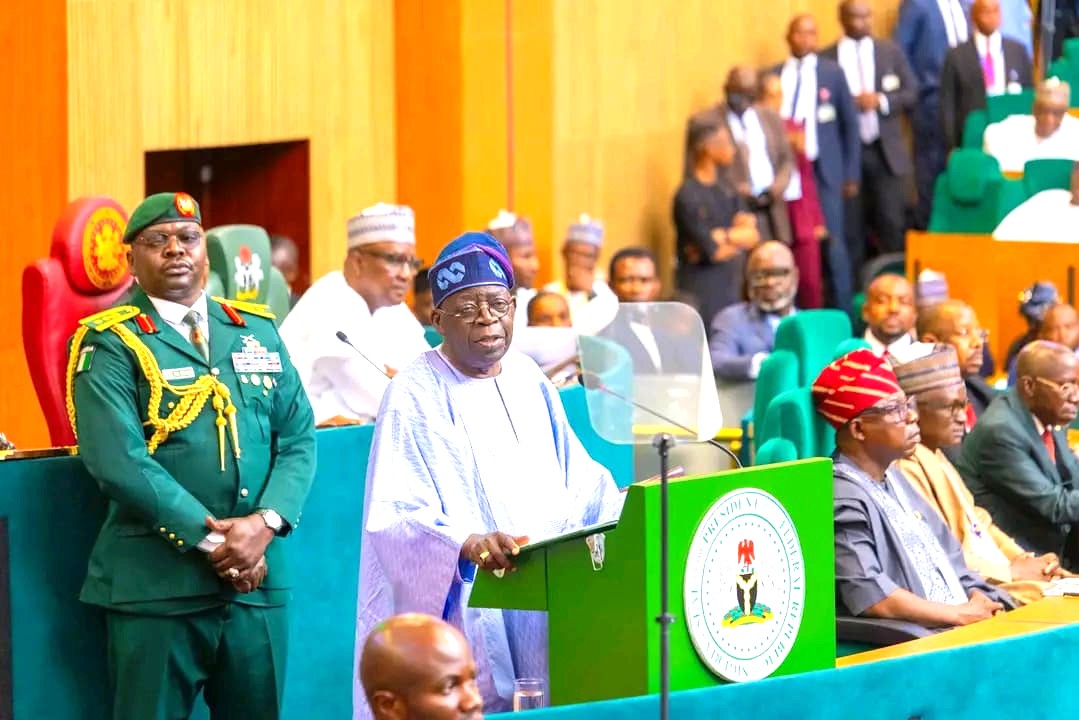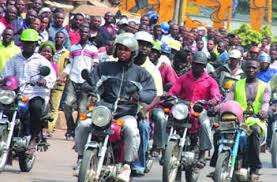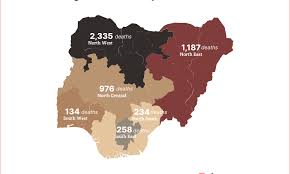The Flaws in Nigeria’s Democracy Day Commemoration
By Jonathan Ishaku
On June 6, 2018, President Muhammadu Buhari surprised Nigerians with the declaration of June 12 as the new Democracy Day. In a move widely viewed as politically calculated, the President shifted Nigeria’s Democracy Day from May 29 to June 12. The decision was ostensibly to honour Chief Moshood Kashimawo Abiola, the presumed winner of the June 12, 1993, presidential election, which was annulled by the military regime of General Ibrahim Babangida. This long-awaited recognition seemed to many Nigerians, especially in the Southwest, like long-overdue justice. However, beneath the surface of national celebration lies a troubling oversimplification of Nigeria’s complex democratic journey.
There is no doubt that June 12 was a momentous day in Nigeria’s history. It was the day Nigerians, across ethnic and religious lines, voted in what has been widely described as the freest and fairest election in the country’s history. Chief MKO Abiola, a Yoruba Muslim, won a pan-Nigerian mandate—one that transcended the usual ethnic and sectarian divides. However, that triumph was cut short by the military’s decision to cancel the election, sparking widespread protests, civil disobedience, and a chain of events that contributed to Nigeria’s eventual return to civilian rule in 1999.
Yet, to rebrand June 12 as Democracy Day and reduce Nigeria’s democratic history to that singular event is to misrepresent the nation’s struggle and trivialize the broader, often bloodier, and more complex narrative of our political evolution. It is a historical reductionism that ignores the contributions, sacrifices, and milestones that predated and followed that infamous day.

To begin with, it is essential to remember that the 1993 election, for all its celebrated democratic outcome, was conducted under a highly controlled and manipulated political process. After years of military dictatorship, the government of President Babangida lifted the ban on political activities in 1989, prompting the formation of over 30 political associations. However, these associations were summarily disbanded. The Armed Forces Ruling Council (AFRC), under Babangida, then proceeded to establish two political parties—the Social Democratic Party (SDP) and the National Republican Convention (NRC)—effectively turning political participation into a state-sponsored affair.
The two parties were not just created by fiat; they were funded, structured, and staffed by the military government. Manifestos were drafted for them. Party offices were built across the nation using public funds. Even the party leadership (chairmen called sole administrators, secretaries, etc) at local, state, and national levels were government appointees. The primaries that produced presidential candidates were similarly stage-managed. Initially, both parties produced northern candidates. After public outcry, the government annulled those results and imposed a new rule excluding so-called “old breed” politicians from the contest. New primaries were conducted under tight military oversight, eventually producing Chief Abiola and Alhaji Bashir Tofa as the flagbearers of the SDP and NRC, respectively.
Even the respected Nobel Laureate, Professor Wole Soyinka, described the two parties as “parastatals of government,” questioning the legitimacy of an election where the institutions of democracy had been constructed from the top-down, rather than from the aspirations of the people. The process was flawed, the parties artificial, and the framework unrepresentative. It was only the sheer charisma, wealth, and cross-regional appeal of MKO Abiola that lent credibility and legitimacy to what was, in effect, a controlled political experiment.
Therefore, to now elevate June 12 as the pinnacle of Nigeria’s democratic experience is to forget these foundational distortions. The election itself may have symbolized a popular yearning for change, but it was conducted within the confines of a military-engineered political process. It is this contradiction that makes the current celebration of June 12 as Democracy Day somewhat disingenuous. But then former General Buhari knew no better.

More troubling, however, is the political motive behind the declaration. Many political observers rightly saw President Buhari’s 2018 decision as a strategic move to win political favour in the South West, a region that had grown increasingly critical of his administration’s perceived marginalisation and mediocre performance. By aligning himself with the legacy of Abiola—a Yoruba icon—the President hoped to curry electoral favour in his 2019 re-election bid. In effect, a profound national event was appropriated for electoral gains.
In the years since the declaration, the official commemoration of Democracy Day has become increasingly myopic. Government speeches, media reports, and academic books have begun to frame Nigeria’s democratic journey as beginning and ending on June 12. This is a dangerous distortion. It marginalizes other critical moments in Nigeria’s struggle for democracy: the anti-colonial nationalist movements of the 1940s and 50s; the First Republic’s democratic experiment; the various labour and civil uprisings during military regimes; the sacrifices of civil society groups; the mass mobilizations of the late 1990s; and the eventual return to civilian rule in 1999.
It also glosses over the deficiencies of our current democratic reality. Democracy is not merely about elections. It is about the rule of law, freedom of expression, an independent judiciary, accountable governance, and the protection of civil liberties. On all these fronts, Nigeria still falls dangerously short. Elections remain marred by violence, vote-buying, and judicial controversies. The National Assembly, rather than acting as a check on executive excesses, is often complicit. Human rights abuses continue unabated, and corruption remains endemic. Where are the medals for fallen EndSAR heroes? Or the accolades for the BBOG activists? Or the mention of the women and men who protest on the streets seeking an end to the senseless killings by militia gunmen?
True democracy is not a date on a calendar; it is a culture—a continuous commitment to expanding civic space, protecting minority rights, ensuring electoral integrity, and holding leaders accountable. While June 12 should be remembered, it should not be fetishized. Democracy Day should serve as an occasion not only to honour past heroes but to critically evaluate our present condition and renew our collective resolve toward democratic deepening.
Going forward, Nigeria must move away from a romanticized fixation with June 12. Instead, we must broaden our democratic imagination. Our education curricula must teach the full breadth of our political history, not just a selective narrative. Our public discourses must include forgotten figures and lesser-known events that shaped our democratic evolution. Most importantly, our political leadership must reflect the values of democracy in action, not just in rhetoric.
If we must retain June 12 as Democracy Day, (and it should be) let it be as a symbol—an entry point to a deeper reflection on the meaning of democracy in Nigeria. Let it serve as a reminder that democracy is not a gift from military generals, nor the property of any single region or politician. It is the result of the collective struggle of millions of Nigerians—past, present, and future—who continue to demand a nation that is governed by justice, fairness, and the will of the people.
Mr. Ishaku, journalist, essayist and author, can be reached at bishilee2017@gmail.com.






Post Comment